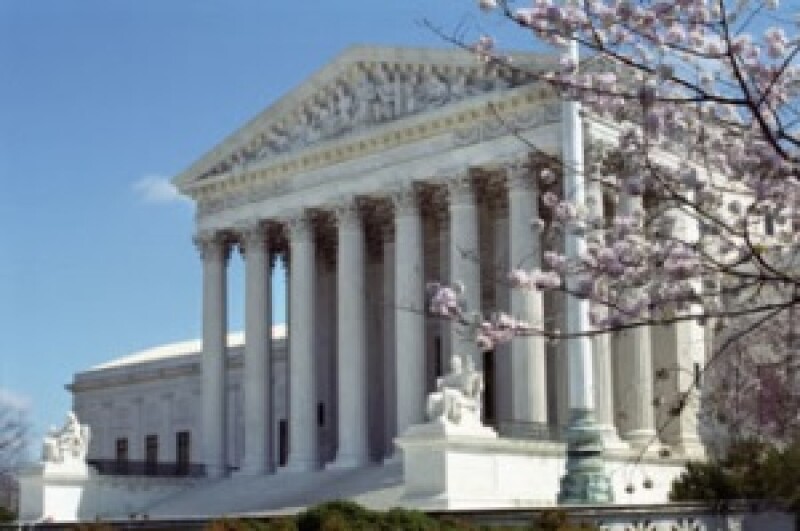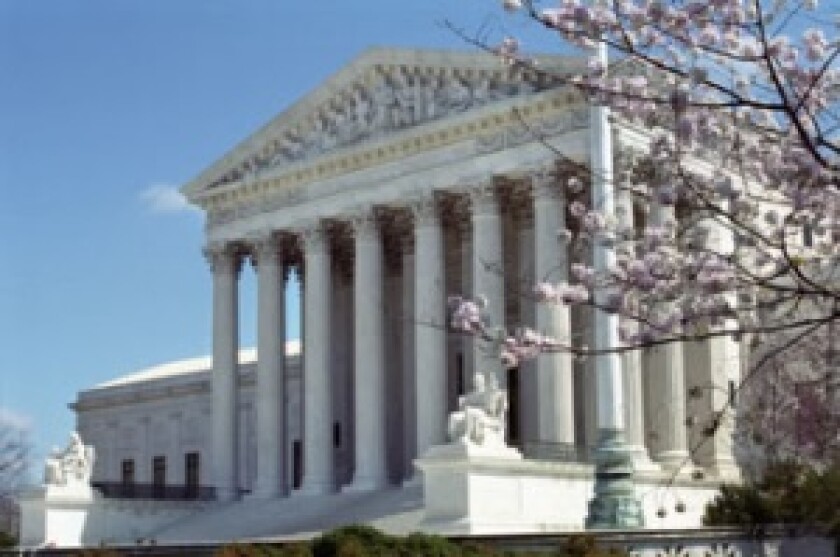
The US Supreme Court chose the Friday afternoon before a holiday weekend as the ideal time to grant cert in two IP cases – one patent case and one copyright case.
Cuozzo Speed Technologies v Lee will be extremely closely watched. It will be the first time the Supreme Court has weighed in on the new Patent Trial and Appeal Board (PTAB) proceedings.
The case involves the first ever inter partes review petition filed, and the first appeal of a PTAB ruling to the Federal Circuit. Last February, the Federal Circuit affirmed the Board’s final determination, finding no error in its claim construction under the broadest reasonable interpretation (BRI) standard, the obviousness determination, or the denial of Cuozzo’s motion to amend.
Cuozzo appealed to the Supreme Court, asking two questions:
- Whether the [Federal Circuit] erred in holding that, in IPR proceedings, the Board may construe claims in an issued patent according to their broadest reasonable interpretation rather than their plain and ordinary meaning.
- Whether the [Federal Circuit] erred in holding that, even if the Board exceeds its statutory authority in instituting an IPR proceeding, the Board’s decision whether to institute an IPR proceeding is judicially unreviewable.
The case could greatly affect PTAB proceedings. The standard used has been a source of controversy, with many claiming the PTAB should use the same, narrower, standard as district courts. One such critic was indeed the Federal Circuit’s own Judge Pauline Newman, who wrote a strongly-worded dissent in the Cuozzo case. Steve Maebius, partner at Foley & Lardner, said the Supreme Court’s ruling could have a profound impact. “BRI is fundamental to the balance of power between patent owners and petitioners, and acceptance of cert by the Supreme Court may signal intent to modify BRI, which could benefit patent owners,” he commented.
The Supreme Court has also granted cert in Kirtsaeng v John Wiley & Sons. The question presented is:
- What is the appropriate standard for awarding attorneys’ fees to a prevailing party under § 505 of the Copyright Act?
The petition noted that Section 505 of the Copyright Act provides that a “court may … award a reasonable attorney’s fee to the prevailing party” in a copyright case, but that different circuits take very different approaches. The Ninth and Eleventh Circuits award attorneys’ fees when the prevailing party’s successful claim or defence advanced the purposes of the Copyright Act. The Fifth and Seventh Circuits employ a presumption in favour of attorneys’ fees for a prevailing party that the losing party must overcome. Other courts of appeals primarily employ the several “nonexclusive factors” standard.
“And the Second Circuit, as it did in this case, places ‘substantial weight’ on whether the losing party’s claim or defence was ‘objectively unreasonable’,” says the petition.
Managing IP will publish analyses of both cases in the coming days.










